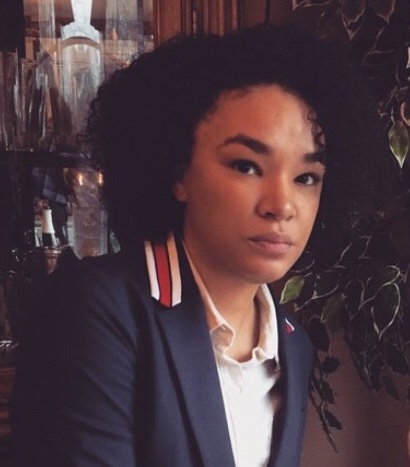Reflecting back on the last almost decade and a half of my bipolar diagnosis, I’ve noticed my perspective has shifted when it comes to considering the most difficult part.
At first, it was the mania. Not exactly being in the middle of an episode, but the aftermath of what to do with purchases, or bank accounts, bills, and even broken hearts.
Then the depression. The days wasted from not being able to touch the ground beneath my bed or calling out of work and staying on by a thread. Breathing in and out hoping the phone wouldn’t ring asking me if I am okay or the knock on the door would be someone coming to rescue me from this mood.
Now, years later, surprisingly, the hardest part is the stigma.
I once went to a dinner party with a good friend to meet some of her other friends. We all sat outside to eat and the conversation circled around to talking about one of their husbands who they recently separated from.
“He was awful. He was destroying my life.”
“He’s so crazy.”
“He’s so bipolar. His mood swings throughout the day…”
I froze in my head. Mood swings are a stereotype of Bipolar Disorder. Depressive and Manic episodes last weeks and not moments and your mood and emotions are on such a spectrum and intertwined. You can have good days during a depressive episode, smile and laugh even. You can have numerous emotions. It’s not just all up and down, back and forth like on TV or the knife-wielding maniac like on Lifetime. But all of this didn’t come out of my mouth.
I nodded.
I grimaced.
I was determined not to ruin this meeting with my feelings of being stereotyped and stigmatized and to just get through it. I didn’t want to make anyone feel uncomfortable.
Fortunately, my friend guided the discussion into a new direction and the husband and her diagnosis of him only came up a few more times.
Why didn’t I speak up? I already feel as though I walk around like people can tell there is something going on with me. That I take medication, and that they can somehow just see the internalized stigma and shame of having a mental health diagnosis. I would slouch my shoulders and try to appear smaller and go inside myself more just so people couldn’t see too much or figure out what was literally inside my head. I would sacrifice being hurt by stigma to protect what identity I had presented.
The stigma inside would be tougher than the stigma of the world, but both hurt and were hard to navigate. Sometimes they are still hard.
As I have grown in my diagnosis, it has become such a small part of my identity until an episode hits, which fortunately is not as common as it once was, taking medication in the morning or when these moments of internalized or external stigma happen.
Internalized stigma is when I manifest my own stereotypes, talk negatively and get lost in my thoughts when it comes to my feelings about Bipolar Disorder. Limiting myself, doubting my abilities and second-guessing my competency. As a social worker, I would second guess my assessments or judgement sometimes thinking “maybe I am too much like my clients to create a successful treatment plan. How can I lead?” Or if I became overwhelmed I would wonder if people without Bipolar Disorder would be as overwhelmed as I am. Relationships would be overanalyzed as if to make a misstep and reveal this side of me, things would sour. The thing is- Bipolar Disorder is not a side- it’s an aspect, but not worth the shame I felt with it.
But what about relationships?
I felt inclined to tell partners once it was about to get serious. As if a red warning sign needed to be shared. As if the first month could be used to convince them to stay once I revealed my medical history.
Some didn’t care and others did. One time, I decided to wait a long time and the response was, “I just want to have fun. I’m not sure about taking medication.”
It ended and I questioned my decision and myself.
Navigating stigma from others will always be complicated. Not as much now as I value education over comfort and correction over reading the room- but there are still moments where I bite my tongue. There are still books and movies and stories that are stigmatizing and the hardest part is not internalizing it. Not adding it to the already negative self-talk. Practicing taking care of myself as a whole and not measure my worth by the sharpness of certain words.
Yes, stigma, for me is the hardest part of Bipolar Disorder, but just like stigma, love comes from within as well.

Nena is the founder of Down to Utopia, a site which focuses on her journey with mental health and wellness. She received her Bachelors in Social Work from Temple University and Masters in Social Work from the University of Illinois at Chicago. As an US Air Force Veteran, Nena focused her social work practice on the veteran population. Nena currently resides in Philadelphia with her husband, son, Corgi and chinchilla.








Leave A Comment